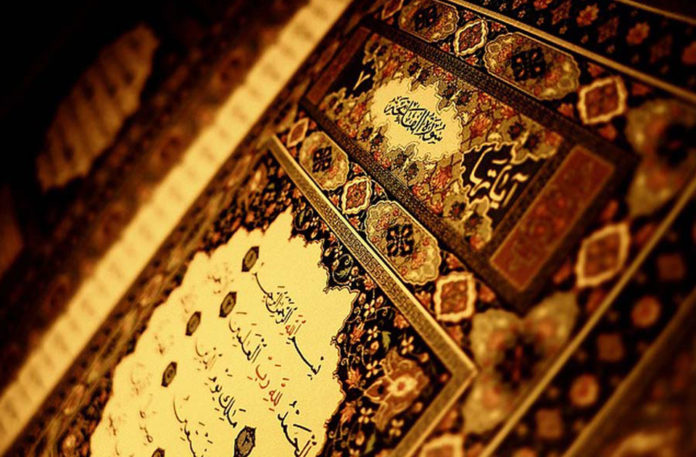Umm Jafar, Zubaydah was the darling queen of fifth Abbasid Caliph Harun ar-Rashid (170H, 786 A.D to 193H, 809 A.D). Her name was Amatul Aziz but she came to be known as Zubaydah. Her grandfather Abu Jafar Mansur who had endearly named her Zubaydah, made very special arrangements for her education. Very competent and highly qualified teachers and scholars were hired. Zubaydah, herself was very intelligent and right-minded. She obtained education with great interest and developed an attachment with the Quran and Hadith, which persisted for the entire of her life. She excelled in Arabic literature as well as other fields of learning. Her erudition could be compared with those of the celebrated scholars of her days.
Zubaydah was a very graceful lady. She was kind hearted, generous and literary minded. Though her living was regal and her magnificence and splendour was unparalleled in the precincts of the royalties. On the one hand thousands of dinars were spent on her single dress, her foot wear was studded with diamonds and pearls and her palaces were lighted with candles of amber. Her kitchen expenditures were more than ten thousand dirhams daily. Hundreds of people would live on her kitchen.
On the other hand her life was a decent example of a devout Muslim woman. She had engaged one hundred slave girls who would recite the Holy Quran constantly. Her palaces perpetually echoed with the voices of the recitation. She was very respectful to the literate. Some of them were granted regular stipends. She was very punctual in prayers and fasting. She went on Hajj a number of times. Once she made the journey to the holy land on foot.
She took great interest in the projects of public welfare and would spend on them generously. She built inns and lodges on the way from Iraq to Makkah and dug the wells for pilgrims and travellers. The road was lost from time to time as the storms and strong winds would often carry along the sand and dust and spread all around, leaving all the area a vast desert and the travellers wandered about, unable to find the road. The queen, Zubaydah cost hundreds of thousands of dinars to erect the stonewall along both sides of the road to block the winds carrying sand. She built a number of grand mosques, as well.
She also dug a big canal from the mount of Lebanon to Beirut to provide water for the people of the area. But her monumental work which would become a legend in the days to come was the construction of the Zubaydah Canal a landmark in the history of hydro engineering. It is stated that years before the Caliphate of Harun ar-Rashid was established, there was acute shortage of water in Makkah. Local inhabitants and the pilgrims were equally in great distress. Sometimes a small waterskin would cost up to ten dirhams and big one for a gold coin. A time came when the scarcity of water endangered the lives of people and the livestock and it was taken very seriously, if the proper arrangements were not made, hundreds of thousands lives would be lost.
The officials reported the gravity of the situation to the empress. She resolved to solve the problem by ensuring persistent supply of water to Makkans and the pilgrims. She summoned the hydro engineers and the master architects and ordered them to find out some springs in the mountainous suburbs of Makkah.
After months of manoeuvring and surveying they succeeded, at last, to find two springs, one on the way to Taif at the distance of 25 kilometres from Makkah and the other in the hills of Kara in the valley of Noman. But to bring water to Makkah was an uphill task. Ranges of mountains were a real hurdle. But the ambitious empress ordered the project to be implemented and assured the men that she was ready to pay a gold coin for every stroke of the pick.
The work started and with tireless efforts of three years, thousands of workers and warders made possible, which once seemed impossible. They maneuvered the canal through the hilly valleys by cutting open the hearts of the imposing mountains. The bill of the gigantic project rose to seventy Lacs gold dinars. When the documents of accounts were produced to the empress, she was seated in her palace, at the bank of the river Tigris. She did not even cast an eye at the documents and directed the papers to be thrown in to the Tigris and said, I have left these accounts to be settled on the Accountability Day, as, all I have done, is to seek favours from Allah. If any amount is owing on my account, I am ready to pay and if anyone else owes to me, I write it off.
In addition to all emoluments and dues, empress Zubaydah gave away prizes and bestowals generously to all the people of the project and ordered the event to be celebrated.
As for the Zubaydah Canal, actually two separate canals were dug from both the fountains, which were merged somewhere in the hills into a single Canal, which runs up to Arafat and Mina. Along the banks of the canal, tanks were made at proper places to store the water of rains, whichever to supplement the canal water. The base of the canal was concreted to prevent the sepage of water. A considerable part of the canal was covered to keep the water unpolluted from the sand-storms which was a frequented event of the area.
In the beginning the canal came to be named Aynal Mashash but later it was attributed to Zubaydah. The 33 kilometers long canal flowing by the Mount of Arafat, made its tail end at Chah Znbaydah. a site, at few kilometres from Makkah. The empress intended to extend it to Makkah, but some unconquerable hurdles blocked the way. But still the water came in to the reach of the Makkans.
Footnote
Taken from haqislam.org
(NOTE: If you want to build a strong and powerful relationship with Allah, check out Islamia TV, where you can watch Islamic speakers from across the globe deliver inspiring and motivational courses. Learn more at www.islamia.tv.)





















